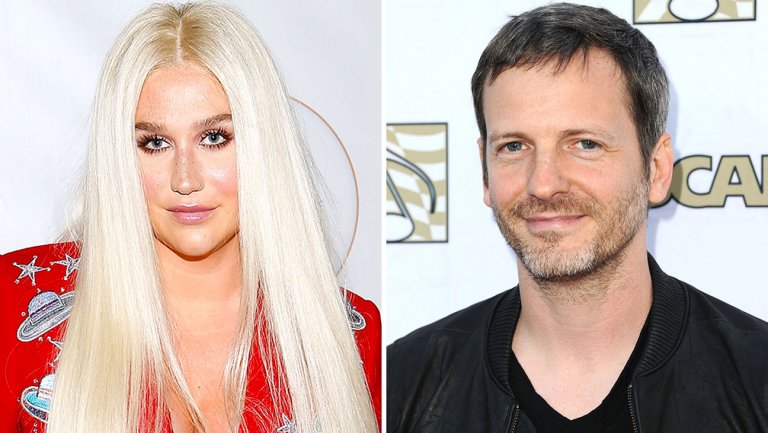The real-life experiences of both Ke$ha and Gwen Stefani completely shape the messages they attempt to convey throughout their music. Both artists started their careers at a young age and were quickly shaped by their labels as desirable women with a large sexual appeal. As they grew older, they began to reflect on the situations they were in, and the unfair, unwritten rules they were abiding by. As a sort of cry for help or even a statement that a change was coming soon, they vocalized their distress and acknowledged their circumstances in their music.
Ke$ha
Kesha Rose Sebert (Ke$ha) was born on March 1st, 1987 in Los Angeles, California. Her mother, Pebe, was a songwriter with credits such as Joe Sun and Dolly Parton’s “Old Flames Can’t Hold a Candle to You.” Kesha’s family struggled financially, and she recalls her mother telling her at a young age “if you want something, take it.” This sentiment would stick with the young woman and influenced many of her decisions later on in her career. At the age of four, Kesha moved to Nashville with her family as a result of her mother’s writing contract. At 17, she left school to pursue a music career, as a result, the stage name “Ke$ha” was born. She earned a record contract with lucrative label RCA following her cameo in the hit Flo Rida song “Right Round.” (Biography.com)
After a slew of commercial success in the early 2010s with songs such as “Your Love is My Drug,” “Tik Tok,” and Blah Blah Blah,” Ke$ha’s life took a turn for the worst. In January of 2014, the young artist sought treatment for an eating disorder that arose as a result of her label pressuring her to keep a “skinny image.” She was forced to go on a juice fast, and when she was caught by longtime producer Dr. Luke eating turkey, he abused her. Later that same year, Ke$ha filed a lawsuit against Dr. Luke. She claimed that he had sexually harassed her, assaulted her, treated her less than humanly, and even refused to release her from her contract on his label at Sony Music. (Hogan, Marc) In August of 2017, after more than three years of legal battles, and an inability to release any new music, Ke$ha was released from her contract. In this same month, Ke$ha released her first studio album after five years, called Rainbow– although legal actions are still occurring as of March 2020.
As a result of her eating disorder, Ke$ha had entered a rehabilitation facility. The singer later revealed that she had to beg the institution to let her play an instrument during her time there– yet another huge challenge for the young woman. Eventually, the center gave her one hour a day to play the piano, and she later commented that “The whole album idea (Rainbow) and tour and everything, came from me crying and singing and playing and dreaming until my hour was up and they took the keyboard away again. Every day I would just cry and play that song because I knew I had to get through that incredibly hard time. I knew I had to change and learn to take care of and love myself, and I had no idea how to even begin.” (Peterson, Anne Helen) “‘Rainbow’ was the beginning of me turning that around and being kind to myself. It is a reminder that I can make it through anything. I hope this song exudes hope and self-love because each of us deserves it,” she said. (Coscarelli, Joe) Ke$ha’s experience and the way she incorporates it into her music is similar to Tina Turner. Turner’s first solo rock album titled “Private Dancer” was “predicated on the revelation of her oppressive past, which exposed the link between the patriarchal system of male privilege and the suppression of her musical abilities.” (Lewis, 74-77) Upon release, she changed her stage name from Ke$ha to Kesha, as a way to reinvent herself and leave her troubled past behind her. (Bell, Sadie) Her album “Rainbow” contains countless lyrical and visual nods to her struggle not just with Dr. Luke, but with her existence as a woman in the music industry, meant to empower all who listen to the album’s fourteen songs.

(Ke$ha waving at a red carpet event during her legal joust with Dr. Luke.)
Coscarelli, Joe. “Kesha, Even With a Liberated New Album, Remains Tied to Dr. Luke.” The New York Times, The New York
Times, 9 Aug. 2017, www.nytimes.com/2017/08/09/arts/music/kesha-rainbow-dr-luke-lawsuits.html.

(Ke$ha & Dr. Luke)
Gardner, Eriq. “Kesha Suffers Huge Setback in Legal War With Dr. Luke.” The Hollywood Reporter, 18 Apr. 2020, www.hollywoodreporter.com/thr-esq/kesha-suffers-huge-setback-legal-war-dr-luke-1277130.
Gwen Stefani
“Gwen Stefani” was born Gwen Renee Stefani on October 3, 1969, in Fullerton, California. In the mid-1980s, Stefani helped form the band “No Doubt” as their lead singer. The band played in clubs around their native Orange County for a couple of years before eventually signing to Interscope Records. In 1992, they released their first self-titled album. However, the work failed to attract any attention. In 2004, Stefani split from No Doubt to release her first solo album titled “Love.Angel.Music.Baby.” The album was a massive success, and the young artist decided to stay solo. (Biography.com) Although, the musician’s life was riddled with hardships and setbacks as a result of her gender. Her entire life, Stefani had dealt with issues such as not being taken seriously as a female artist despite being the lead singer of her band, or unwanted sexual advances by men of all kinds. In an article titled “Gwen Stefani says feminist anthem “Just A Girl” is about ‘power through your sexuality,’ vulnerability,” Stefani reflects that she “didn’t even know who she was.” “I just kind of wrote this song because I felt like I was just getting in touch with that feeling that when you’re born if you’re a female, you don’t think about it, you’re just human,” the singer explained. “Then, through life, you sort of start to realize, ‘Oh wait, someone just whistled. What does that mean?'” Stefani, 49, said that at the time, she felt women could “get this power through your sexuality” while also being “vulnerable…because all of a sudden you’re a victim.” (Rosa, Joanne) As a result of her understanding of the everyday struggles that women all over the world face, she would release music that spoke directly to their insecurities and fears, encouraging young women to act freely, and embrace who they are.

(Gwen Stefani, age 49, performing “Just A Girl”)
Lane, Concert. “Gwen Stefani - Just A Girl!” Medium, Medium, 13 June 2019, medium.com/@ConcertLaneUS/gwen-stefani-just-a-girl-9b26e246584c.
